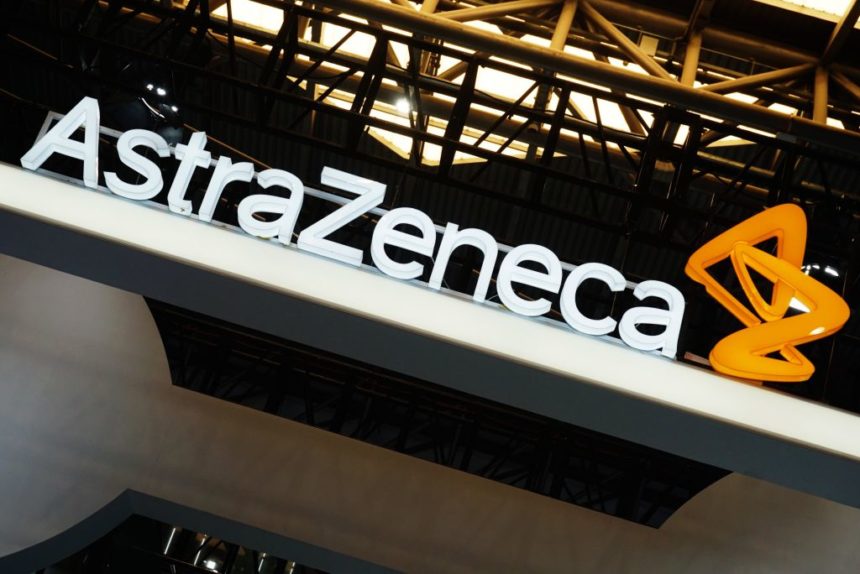AstraZeneca has in-licensed CMG901, an experimental antibody drug conjugate (ADC) for treating gastric cancer, from China-based biotech KYM Biosciences, firms said Thursday.
Under the agreement, AstraZeneca will be responsible for the global research & development (R&D), manufacturing and commercialization of CMG901. The ADC is currently in Phase 1 for treating Claudin 18.2-positive solid tumors, including gastric cancer.
Terms include a $63 million upfront payment to KYM upon the transaction closing, which is expected in the first half of the year. AstraZeneca also agreed to make additional development- and sales-related milestone payments of up to $1.1 billion, as well as tiered royalties up to low double digits.
“CMG901 strengthens our growing pipeline of antibody drug conjugates and supports our ambition to expand treatment options and transform outcomes for patients with gastrointestinal cancers,” said AstraZeneca’s Puja Sapra, SVP of biologics engineering, oncology targeted delivery and oncology R&D, in a statement.
The deal marks growing interest in the Claudin 18.2 target. Other recent deals with Chinese biotechs include Elevation Oncology and CSPC Megalith Biopharmaceutical for SYSA1801 and Turning Point Therapeutics and LaNova Medicine for LM-302 (TPX-4589), both of which were inked in 2022.
Nor is this the first time the British biopharma giant has in-licensed a drug for targeting a Claudin 18.2-expressing cancer. Last year, AstraZeneca locked up exclusive global rights to Harbour BioMed’s anti-Claudin 18.2xCD3 bi-specific HBM7022.
ADCs, which have been under development in oncology for the last decade, allow for targeting cytotoxic agents directly to cancer cells. As such, they’re designed to be more specific than older oncology products. AstraZeneca has also been looking to develop its own ADCs, including AZD8205, which targets the B7-H4 protein.
KYM is a 70-30 joint venture between China’s Keymed Biosciences and Lepu Biopharma. Over the past five years, the IQVIA Institute notes, R&D deal activity has shifted geographically to include more companies based in China and Korea, and fewer Europe-based companies.
China headquartered companies account for 15% of the oncology pipeline, up from 4% a decade ago, while Europe’s and Japan’s shares fell to 23% and 6%, respectively, over that period, IQVIA’s data show.







